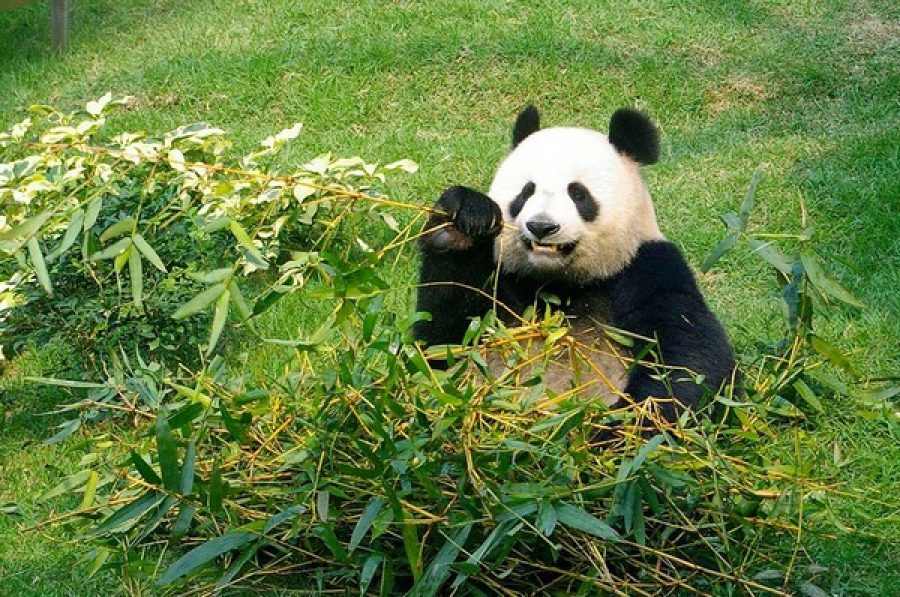Giant panda girl Sum Sum, literally meaning ‘heart heart’, died of kidney failure at 8:18 p.m. Sunday, just before her sixth birthday next month and leaving her boyfriend Hoi Hoi alone in the spacious enclosure in Seac Pai Van Park.
The combined names of Hoi Hoi and Sum Sum literally mean “happiness”. The names were chosen by a public vote.
Civic and Municipal Affairs Bureau (IACM) President Alex Wong Iao Lek told a press conference late Sunday at the bureau’s head office that the local team of giant panda vets found that Sum Sum had kidney problems in a regular health check last month.
According to Wong, after a week of treatment advised by vets from the Chengdu panda base in Sichuan, Sum Sum’s condition showed signs of improvement but in the last two weeks, her kidney functions began to deteriorate, largely because she was in heat and had lost her appetite, refused to drink, became very sensitive and emotional and even fainted. Efforts to save her failed and she died Sunday night.
Leong Kun Fong, IACM Administration Committee member, Lan Jingchao, chief of the panda hospital at Chengdu panda base in Sichuan, and local vet Chan Hoi Fung from the giant panda pavilion’s special team were also at the press conference.
Leong said that an autopsy would be carried out today at her home in Seac Pai Van Park where the state-of-the-art giant panda pavilion, which cost the government 90 million patacas to build, is situated. The pavilion will be closed until further notice.
It will take two to three weeks to get preliminary results of the autopsy, Leong said, adding that the burau would probably need to seek further advice from experts in Chengdu to determine the cause of Sum Sum’s condition.
Lan, who has been in Macau working with the local giant panda team for over six months, said that Sum Sum’s case was “particularly rare” and that it was the first time he had seen such a case as there were no clinical signs that Sum Sum was suffering from a kidney problem because her monthly medical tests showed she was healthy.
“We did all we could to save her, it’s an upsetting time for us too,” Lan said.
Sum Sum was born on July 26, 2008, the first giant panda born after the devastating Sichuan earthquake in May 2008. She is a twin and was described by her keepers in Chengdu as having a strong mating ability, a characteristic passed on from her mother.
Hoi Hoi also a twin, was born in August 2008. Lan said that Hoi Hoi, who lives separately from Sum Sum, is healthy but they would keep a close eye on his condition.
The IACM said earlier this year that in 2015 the panda pair would reach the “ideal” age to mate. Officials had been keeping them apart so as to stimulate their affection towards each other when they were to meet again.
The central government announced in 2009 that it would give Macau a pair of giant pandas to mark the 10th anniversary of Macau’s return to Chinese administration. The pair of “national treasures” arrived in Macau from Chengdu in December 2010 and met the public for the first time in January 2011.
“Hoi Hoi” and “Sum Sum” are the panda pair’s name in Cantonese, although the government uses the Putonghua pronunciation “Kai Kai” and “Xin Xin” when referring to them in English.(macaunews/macaupost)






